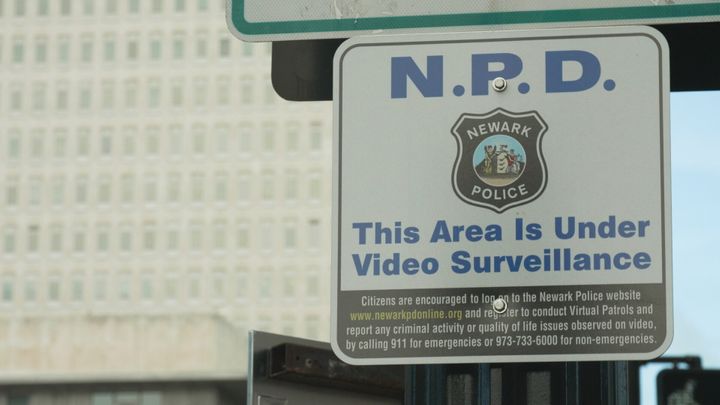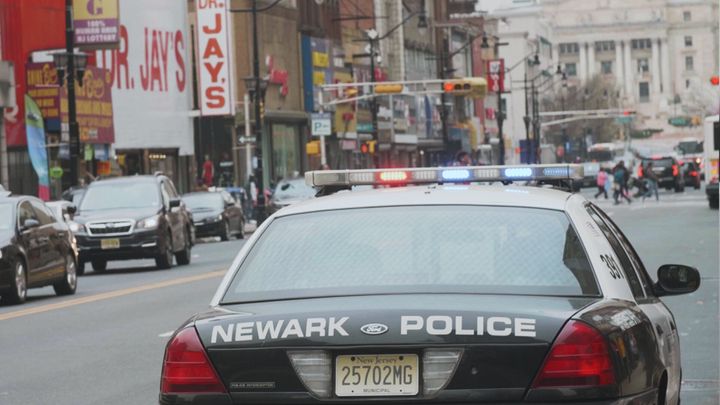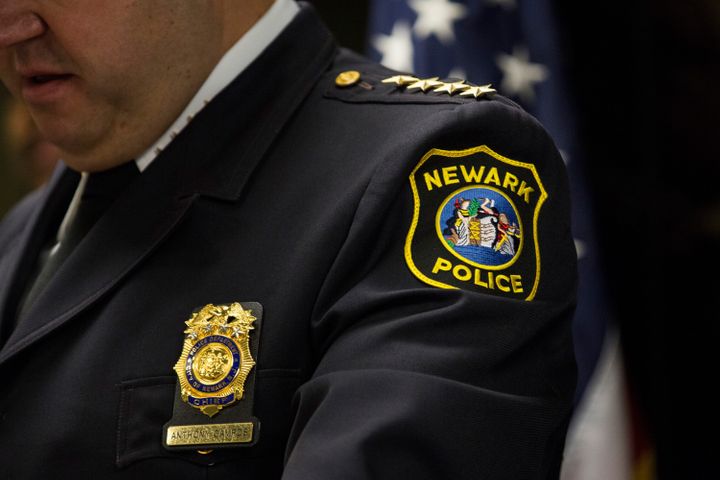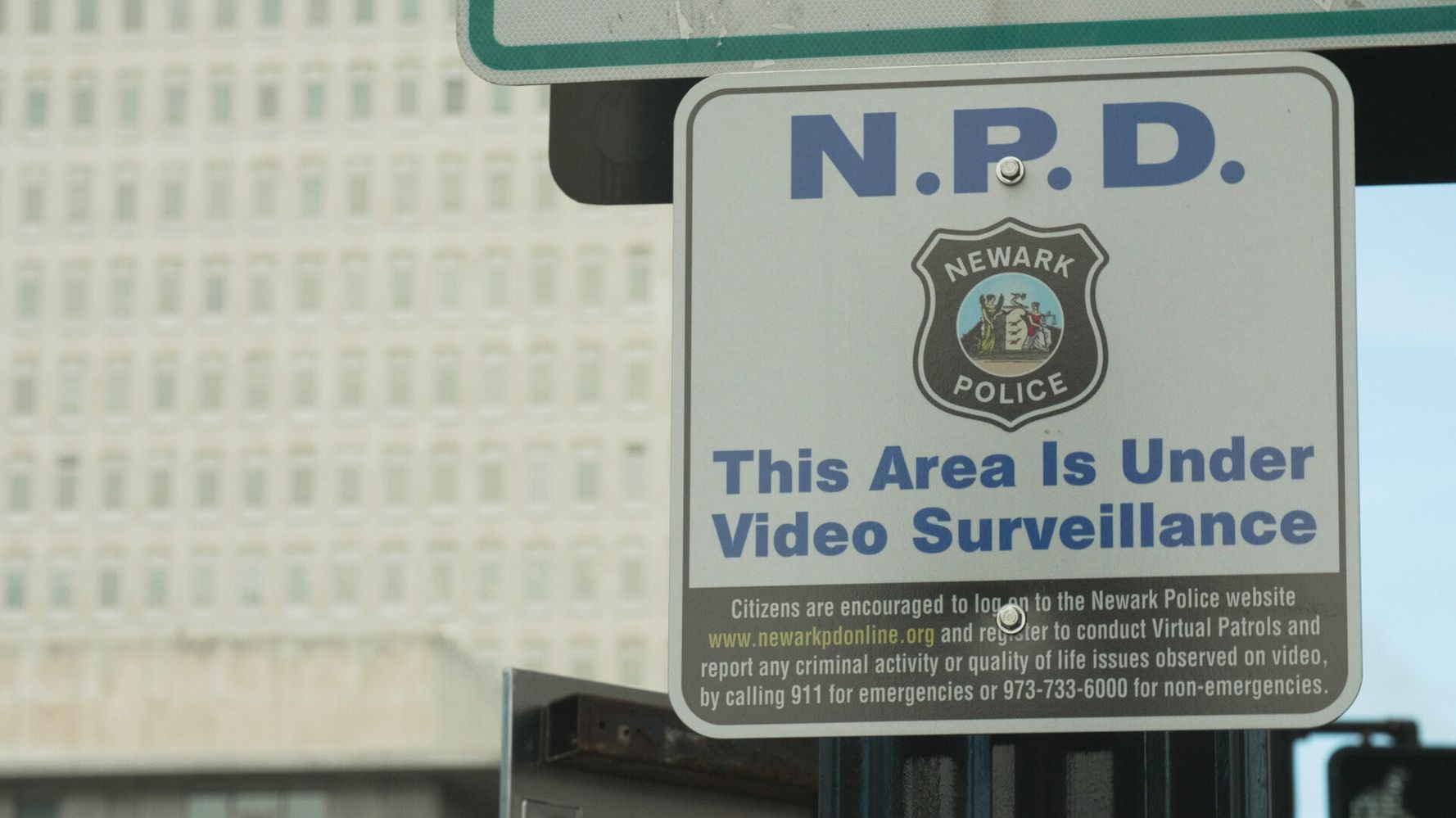[ad_1]
Anti-violence activist Sharon Redding monitors the streets of her neighborhood in Newark, New Jersey, from her computer screen as she gets ready for her day. Three times a week, she logs onto the Citizen Virtual Patrol early in the morning and watches her neighbors and their children head to work and school to make sure they get there safely.
“We should know what’s going on in our community,” said Redding, who works with the Newark Community Street Team, an organization that works to reduce violence in the city.
The Citizen Virtual Patrol, a 24/7 public surveillance system, lets Redding watch the streets of Newark, New Jersey, from anywhere, at any time, through as many as 127 cameras. She’s one of more than 10,000 users who watch the city streets from their computer screens, according to Newark Department of Public Safety. Anyone can sign up from anywhere in the world.
Redding, a retired preschool teacher, also keeps an eye on the cameras in the evening to look out for suspicious activity. She said she has seen a lot of strange happenings while monitoring the online portal, from public urination to what looked like weapons being pulled out of people’s cars.
“When you see it playing out in real-time on the videotape, you’re actually seeing what’s going on,” Redding said. “You can also see what’s being done about the crime — are the police addressing these issues? Is the mayor going to address the things that are going on?”

“This invaluable technology puts a real-time crime reporting tool in the hands of every concerned community member,” a spokesperson for Newark’s Department of Public Safety wrote in a press release announcing the launch of the program in April 2018.
Since its implementation, Newark Director of Public Safety Anthony Ambrose has touted the benefits of using the system.
“There’s lots of things that we’re doing to build trust between the community and the police,” Ambrose told HuffPost. “One of the most important things we’ve done was the virtual cameras.”
Officials say everyday people using these cameras can help law enforcement catch criminals in the act, inherently forging a relationship with the local agency that has been at odds with the community in the past.
But more than a year later, the department has not been able to provide HuffPost with the numbers to show exactly how well it’s working, even though public safety officials say the data does exist. The department has no records of how many arrests or 911 calls have been made using Citizen Virtual Patrol, according to Ambrose and Mark Di Ionno, Newark’s public information officer.
“I think that we showed that we have enough trust in our community — that they can be our eyes and ears 24/7,” Ambrose said. “On the police end of it, it’s good historical data that [investigators] can go back to and if something happens at an intersection, they can go back and check the cameras.”
The video footage is kept for 30 days, Di Ionno said, but Ambrose wouldn’t comment on where the footage goes or who has access to it.
The department is planning to expand the surveillance system throughout the city — adding more than 30 cameras by the end of the year and counting, Ambrose said. These videos capture many aspects of life in Newark: home fronts, storefronts, hospitals, schools and residential parks.

Through the footage, Ambrose said he can look back and track the movements of people and cars as they move from street to street. The system works better as a reactive tool, he said, not a preventative one. That is, the stored footage is what tends to be more helpful in police investigations, not reports from the live viewers.
But surveillance experts said it can only lead to more divisiveness in a community that’s already at odds with its police force.
“You have a camera system that’s concentrated in Black and brown communities, but anybody can look at it,” said Faiza Patel, co-director of the Liberty & National Security program at the Brennan Center for Justice. “We know it’s not just police forces who are racially biased. Individual citizens are as well. You basically have a system where everybody can watch these communities going about their everyday business.”
Newark Police Department has been under scrutiny by the U.S. District Court for the District of New Jersey for civil rights violations since 2014.
The American Civil Liberties Union of New Jersey petitioned the Department of Justice in 2010 to investigate the NPD. The police department was called out for racial profiling, retaliating against people who have spoken out against police conduct, and stopping thousands of people who were “milling,” “loitering” or “wandering” without any proof of reasonable suspicion of criminal activity.
It’s sending a message to the world that people of color need to be watched.
Amol Sinha, executive director of the ACLU-NJ
The Department of Justice also found that the NPD had been “using unjustified and excessive force,” in violation of the Fourth Amendment, and had made a disproportionate number of unconstitutional stops and arrests against the city’s Black residents.
The NPD has since been placed under a consent decree and an independent monitor in order to address the issues.
Some activists question whether these cameras are in violation of the consent decree. They claim that the potential for racial profiling, infringement on civil liberties, privacy rights and stalking is too high of a price to pay in a predominantly Black and brown city.
Half of Newark’s population is Black and 36% is Hispanic, according to the U.S. Census Bureau.
“It’s sending a message to the world that people of color need to be watched,” said Amol Sinha, executive director of the ACLU-NJ. “There is no training being offered to the public to determine what’s considered suspicious behavior. What they’re asking to do is for neighbors to call the police on one another, and we know that that’s going to lead to a number of false alarms.”
Al-Tariq Best, a Newark resident, believes the relationship between the community and the police still needs mending. He runs a nonprofit organization for youth called The HUBB in Newark with the hopes of creating a stronger community through education and entertainment.
“We still have to do more work to make cops understand that there is some historical trauma,” Best said. “Young Black men have been abused on so many levels, and they let you go after they dehumanize you. We have to do something better.”
Crime in the city has gone down by 15% and community relations have improved, thanks to the cameras, Ambrose said. And crime around the cameras has gone down 9%, according to Di Ionno.
Year-to-date numbers suggest that the cameras were seemingly ineffective in catching a majority of the crimes. In the first half of 2018, the cameras had caught only three out of the year’s 69 total murders. No studies have shown that surveillance cameras are effective at stopping crime.
“Despite what people think, surveillance cameras really don’t help bring down crime,” said Patel, the co-director for the Brennan Center for Justice. “Police are going to get a lot of calls out of this, and most of the time, it’s going to be nothing. This is going to flood the system with useless information.”

Redding, the Newark Community Street Team volunteer, said she appreciates the cameras. Although she hasn’t seen a reduction in crime — “they don’t care about the cameras being there” — she likes the comfort of being able to watch what’s going on in her community without stepping out into the danger.
“We have to try to make it better and stop acting like [crime] doesn’t exist,” she said. But Patel disagrees.
“We have this tendency to think that there’s this magic solution that is somehow going to fix [the city’s crime rate],” Patel said. “I know the mayor of Newark has said, ‘Oh well this is going to help improve police-community relations,’ and I think that’s just a fallacy. I don’t think surveilling people is a way to make them trust you.”
Emily Watson and Shaquille Romblay contributed reporting.
REAL LIFE. REAL NEWS. REAL VOICES.
Help us tell more of the stories that matter from voices that too often remain unheard.
[ad_2]
Source link

